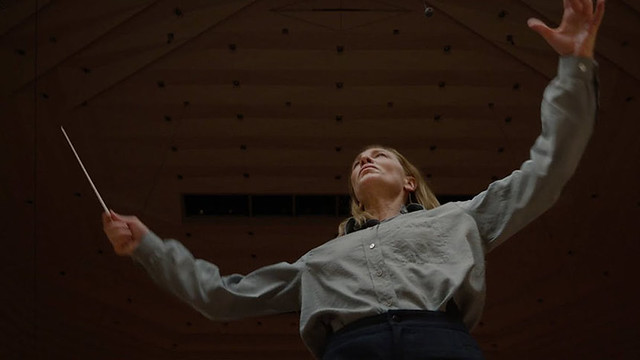 Lush in its widescreen presentation, Albert Serra's Pacifiction is perhaps the most cinematically ambitious film I've experienced in a long time. Thoroughly absorbing from beginning to end, its 2hr 45min runtime is completely justified in my book.
Lush in its widescreen presentation, Albert Serra's Pacifiction is perhaps the most cinematically ambitious film I've experienced in a long time. Thoroughly absorbing from beginning to end, its 2hr 45min runtime is completely justified in my book.
Rotund Benoit Magimel (The Piano Teacher) plays a sleek French High Commissioner named De Roller on the French Polynesian island. I'm convinced that all hunky sharp featured young French actors would eventually hit middle age and end up looking like Gerard Depardieu, without fail. He has to navigate through the angry locals, outside interests, a Navy commander and his marauding troops, to find out whether there is any truth to an international conspiracy that they, whoever they are, will be resuming nuclear bomb testing in the South Pacific.
De Roller, sweating profusely in pimpy white suit and loudly flower patterned shirt hanging out in his hotel resort and clubs, thinks he is wheeling and dealing, making deals to prevent, in the name of the Republic, what’s coming. It’s a glamorous game. At one point one of the character says it's like a James Bond movie but without all the explosions and action and stuff. But they don't get far. The suspects are too tight lipped and not easily swayed by all De Roller offers. You feel that there is a futility in his actions. That he is in way over his head. That whatever it is, is beyond his scope. Where are these men taking local prostitutes out on a boat in the middle of the night? Are there nuclear submarines lurking under the turquoise water? With this thin narrative, Serra paints his own Hearts of Darkness with big brush strokes.
Pacifiction is not dissimilar to Claire Denis's White Material or her most recent Stars at Noon, when it comes the hubris of White colonialism in its misguided superiority complex, and manifest destiny. But Serra's narrative scarcity makes Denis's films feel like reading a dense instruction manual for a washing machine by comparison.
But what's offered in Pacifiction is its grand scope and risk-taking in cinematic filmmaking, much like braving the unrelenting massive waves in the film - the surfing competition in real time with actors actually braving the choppy water, wakes your cinematic senses and wonder; the scene is so unbelievably stupid brave and stupid dangerous, you wonder out loud if this spectacle was meticulously organized or improvised on the spot (the after screening Q&A indicates the latter).
As the wild goose chase ensues for another two hours after the surfing competition scene, you are hooked, as if hypnotized by all the colors and beauty that only South Pacific can offer.
The cold war is never over in the minds of white colonizers. It's a dated stupid game they play, even in paradise. Yet as the world is hurtling towards the global climate catastrophe and a possible nuclear war, Pacifiction doesn't seem too far-fetched or too fictional. I loved every minute of it. It is undoubtedly my favorite film of the year so far.

